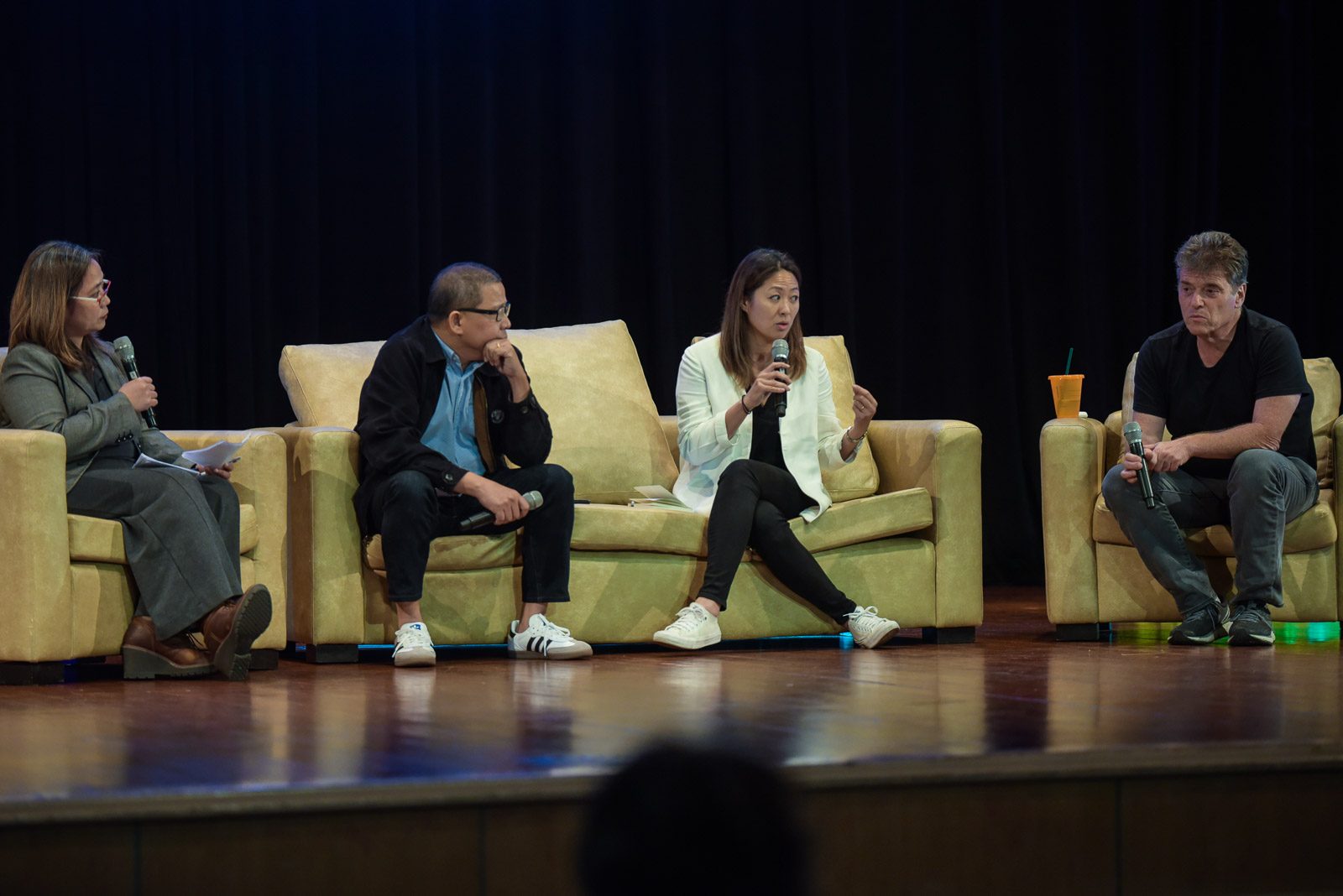SUMMARY
This is AI generated summarization, which may have errors. For context, always refer to the full article.

MANILA, Philippines – Only a data version of the Chernobyl disaster can bring democracy back to the internet, said author and tech entrepreneur Andrew Keen at the 2019 Social Good Summit’s (SGS) “Cutting through the noise” panel.
Keen, along with Google Asia Pacific Region News Lab Lead Irene Jay Liu and Democracy & Disinformation consortium convenor John Nery, joined the panel discussion on Saturday, September 21, at De La Salle University.
The 3 spoke before students, members of the academe, civil society groups, and more about how we can “cut through the noise” of social media to build communities and bring about change.
Earlier in the panel, the 3 spoke about a lack of trust in the digital space and how news media’s paywalls have limited our access to the truth. They also discussed how social media is really not “public space” because they’re owned by private companies, a conversation that Keen and Liu disagreed on.
Asked what might change the abovementioned problems with technology, Keen answered: “My sense of all this is it’s gonna take a kind of data catastrophe, the equivalent of Chernobyl to wake us up… Chernobyl essentially broke up the Soviet Union because it exposed all the corruption, all the inefficiencies, all the redundancies of the Soviet regime.”
He continued, “My fear is that the world we’re living in, which is increasingly dominated by lies and resulting in a crisis of democracy…and it’s really hard to come up with fixes. So probably something terrible has to happen,” he said.
Asked whether there’s something people can do in the meantime, Keen answered that education is important when it comes to solving the crisis of democracy that the internet has brought about.
“And as I said, learning to listen, toleration, debate, media literacy, understanding the way in which these platforms and teaching people these platforms are not public spaces,” Keen added.
“[Understanding] that these companies, whether they’re Google or Facebook, they have their own interests, they’re for-profit organizations, and if people can begin to see through these things in a responsible way…understanding that what they say and what they do are often very different. And I think that’s the way to begin. But there’s no easy fix.”
Liu, who connects Google with newsrooms across the Asia Pacific, said that she has seen change in online behavior, contrary to Keen’s view that things are getting worse.
Not only was there a rise in independent media, she said, but also a rise in cross-border collaborative investigative journalism. Younger people are also more likely to be aware and skeptical of what they read online.
“I think that if we listen also and we listen to understand better how this is changing, how those users and makers are evolving and how they can educate older generations, I think that we might actually see quite a lot of change in the coming years,” she said. – Rappler.com
Add a comment
How does this make you feel?
There are no comments yet. Add your comment to start the conversation.